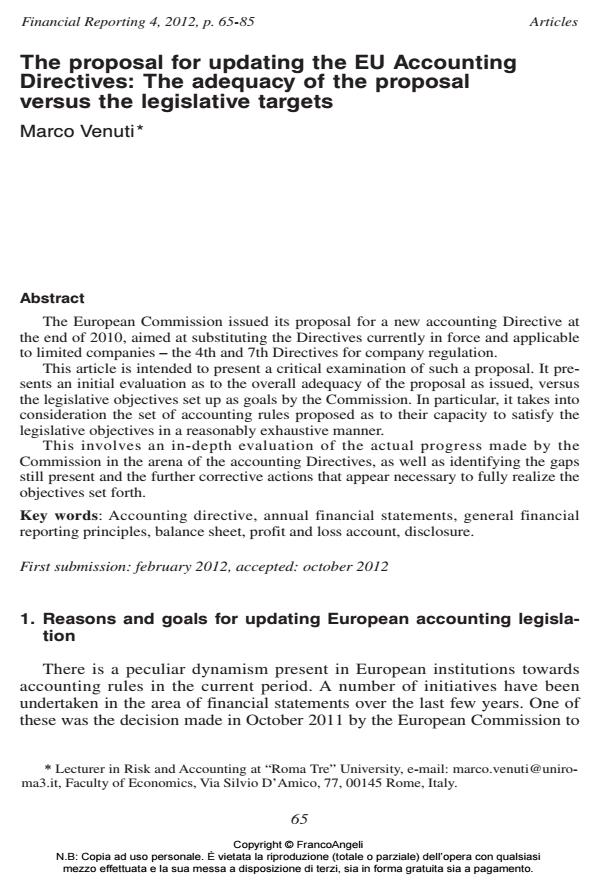The proposal for updating the EU Accounting Directives: The adequacy of the proposal versus the legislative targets
Titolo Rivista FINANCIAL REPORTING
Autori/Curatori Marco Venuti
Anno di pubblicazione 2013 Fascicolo 2012/4
Lingua Inglese Numero pagine 21 P. 65-85 Dimensione file 517 KB
DOI 10.3280/FR2012-004005
Il DOI è il codice a barre della proprietà intellettuale: per saperne di più
clicca qui
Qui sotto puoi vedere in anteprima la prima pagina di questo articolo.
Se questo articolo ti interessa, lo puoi acquistare (e scaricare in formato pdf) seguendo le facili indicazioni per acquistare il download credit. Acquista Download Credits per scaricare questo Articolo in formato PDF

FrancoAngeli è membro della Publishers International Linking Association, Inc (PILA), associazione indipendente e non profit per facilitare (attraverso i servizi tecnologici implementati da CrossRef.org) l’accesso degli studiosi ai contenuti digitali nelle pubblicazioni professionali e scientifiche.
The European Commission issued its proposal for a new accounting Directive at the end of 2010, aimed at substituting the Directives currently in force and applicable to limited companies - the 4th and 7th Directives for company regulation. This article is intended to present a critical examination of such a proposal. It presents an initial evaluation as to the overall adequacy of the proposal as issued, versus the legislative objectives set up as goals by the Commission. In particular, it takes into consideration the set of accounting rules proposed as to their capacity to satisfy the legislative objectives in a reasonably exhaustive manner. This involves an in-depth evaluation of the actual progress made by the Commission in the arena of the accounting Directives, as well as identifying the gaps still present and the further corrective actions that appear necessary to fully realize the objectives set forth.
Parole chiave:Accounting directive, annual financial statements, general financial reporting principles, balance sheet, profit and loss account, disclosure
Marco Venuti, The proposal for updating the EU Accounting Directives: The adequacy of the proposal versus the legislative targets in "FINANCIAL REPORTING" 4/2012, pp 65-85, DOI: 10.3280/FR2012-004005